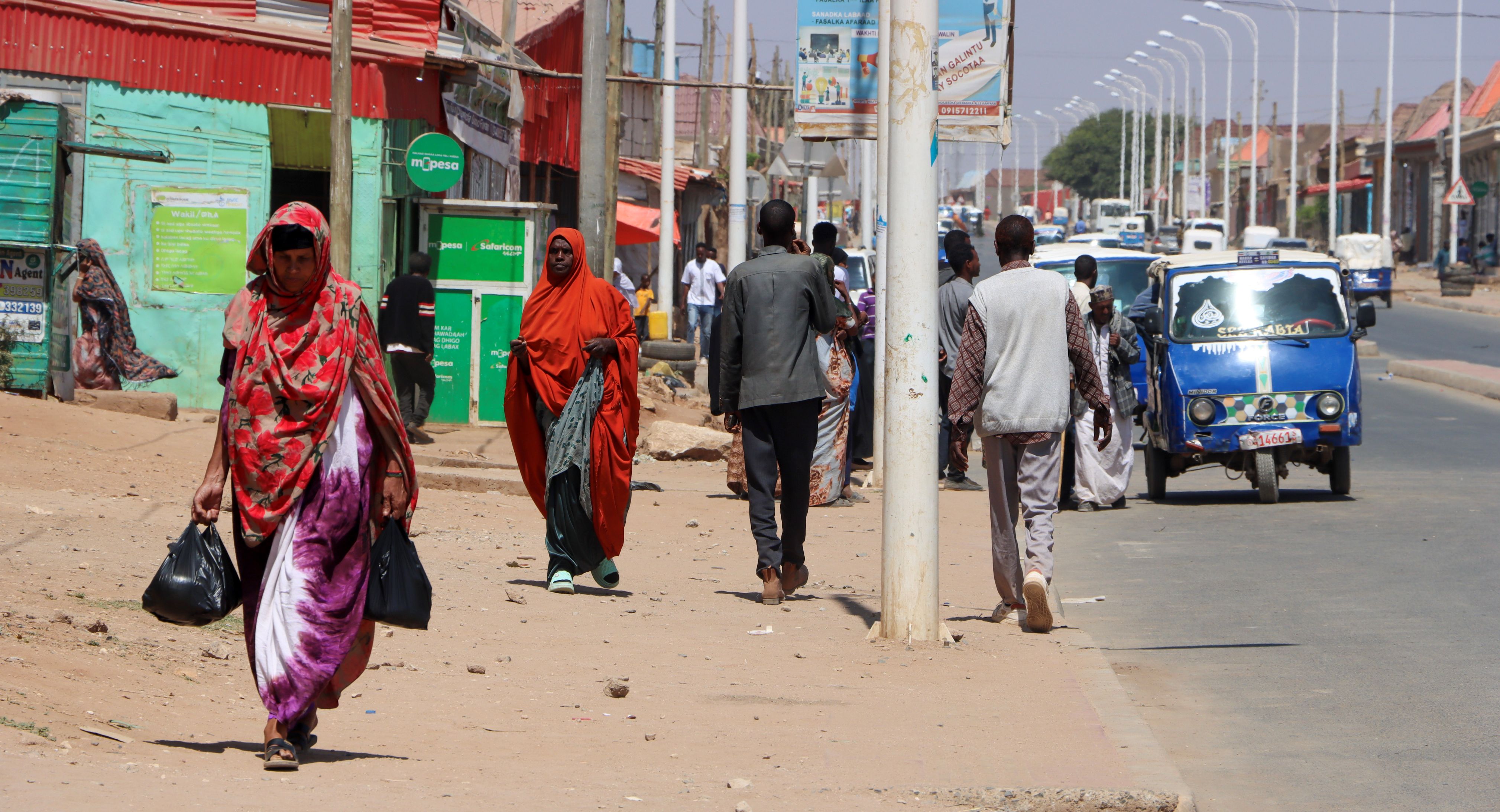Jim Wolfensohn and the Founding of the Cities Alliance
By Mark Hildebrand*, Founding Manager of the Cities Alliance
The accolades paid to Jim Wolfensohn since his death on Nov 25, 2020, in New York City have been many and well-deserved, focusing on his transformative leadership of major public institutions including the World Bank, Carnegie Hall and the Kennedy Center. He lived a remarkable life and left enduring accomplishments.
As President of the World Bank from 1995 to 2005 Wolfensohn focused the institution on its core purpose of fighting global poverty and helping the world’s poor forge better lives. He was a passionate advocate for the world’s poorest and most vulnerable populations and encouraged Bank staff to listen to the “voices of the poor” and engage with a wide range of partners including mayors and local governments, as well as with NGOs and CBOs.
One of his most important legacies was playing an instrumental role in elevating urban poverty reduction and the developmental importance of cities to prominence on the international agenda. As an integral part of these efforts, Wolfensohn provided strong leadership both in establishing and funding the Cities Alliance, as well as in inspiring its Cities Without Slums action plan.
The idea of developing the Cities Alliance evolved out of consultations initiated during the UN’s Habitat II global conference known as the “City Summit”, held in Istanbul in 1996.
The “City Summit” brought together over 15,000 participants from 171 countries and, for the first time, engaged mayors as key actors in a major UN conference. The consultations which followed involved senior Habitat and World Bank urban staff, a number of bilateral and multilateral partners and the leadership of the world’s major associations of mayors and local government.
As a follow-up to the conference, UN Secretary-General Kofi Annan asked Klaus Toepfer, the former Minister of Urban and Regional Development in Germany, to lead efforts focused on the implementation of the Habitat Agenda and the revitalization of UN-Habitat.
During this same period, Wolfensohn had inspired efforts to develop a new “Urban and Local Government Strategy” for the World Bank. Both the Bank and Habitat were committed to sharpening their focus on urban poverty reduction with similar conclusions emerging: that their efforts to-date had not kept pace with the growth of urban poverty and that fundamental changes in urban development cooperation were needed. By the end of 1998, the World Bank and Habitat, in consultation with their partners had agreed to mobilize an international partnership to leverage much broader impacts on urban poverty reduction.
With generous start-up financing authorized by Wolfensohn, a secretariat was established in February 1999, charged with establishing this new partnership, developing its governance structure and charter and raising awareness, funding and global support.
The Cities Alliance was formally launched in May 1999 by Toepfer and Wolfensohn “as a coalition of cities and their development partners committed to making unprecedented improvements in the living conditions of the urban poor by mobilizing resources for citywide and nationwide upgrading programs conceived by local stakeholders and within the broader framework of city development strategies.”
The Alliance was structured to “catalyze partners’ actions in ways they go beyond their individual actions and to help create a new coherence of effort in urban development cooperation”.
Wolfensohn was enthusiastic in his support of this new partnership and encouraged the Alliance to be bold and ambitious in taking up the challenge of urban poverty reduction as a global public policy issue. He asked for a more detailed action plan with clear targets to improve the lives of the urban poor. In response, the Cities Without Slums action plan was developed by the Alliance secretariat in July 1999.
The plan called for improving the lives of at least 100 million slum dwellers by 2020 and detailed the priority actions required to meet this goal. With strong support from Toepfer and Wolfensohn, this initiative quickly became catalytic in mobilizing global political commitment to improve the lives of the urban poor.
The Cities Without Slums action plan was launched by former South Africa President Nelson Mandela at the inaugural meeting of the Cities Alliance Consultative Group held in Berlin in December 1999.
Mandela committed to serve as patron to the Cities Without Slums initiative and to engage other world leaders to mobilize political will to support “this creative and daring response to urban poverty”.
This first meeting of the Consultative Group was hosted by the German Government and was jointly chaired by Toepfer and Wolfensohn. It brought together the initial members of the Cities Alliance which already included all of the G-7 governments, plus the Netherlands, Norway and Sweden, the local authority organizations, UN-Habitat and the World Bank. The Alliance’s Charter and 2000 work program were approved by the Consultative Group, and initial funding commitments totaled over $11 million.
In early 2000 Toepfer and Wolfensohn brought the Cities Without Slums action plan to the attention of UN Secretary-General Kofi Annan who was preparing for the Millennium Summit. The Alliance secretariat was invited to brief the S-G’s office and the Cities Without Slums action plan was subsequently incorporated in the S-G’s report to the UN General Assembly (A/54/2000 of 27 March 2000) which set the agenda for the Millennium Summit.
In his report “We the Peoples: The Role of the United Nations in the 21st Century” Kofi Annan called on all Member States to commit themselves to ending poverty and inequality, and “strongly endorses” the Cities Without Slums action plan and its targets.
Mandela then wrote letters to a number of heads of state asking for their support and in September 2000 the Cities Without Slums action plan was endorsed by the 150 heads of state and government attending the Millennium Summit.
In the Millennium Declaration’s section on “Development and poverty eradication” the world’s heads of state and government resolved “By 2020, to have achieved a significant improvement in the lives of at least 100 million slum dwellers as proposed in the Cities Without Slums initiative”.
The Cities Without Slums action plan subsequently became Target 11 of the Millennium Development Goals. This was the first time an international development target focused on tackling poverty where it is growing most rapidly – in cities.
Over the next five years until his term at the Bank ended in May 2005, Wolfensohn continued to enthusiastically support the work of the Cities Alliance. During this period the Alliance both expanded its membership - with the Asian Development Bank joining in 2002, followed by the United Nations Environmental Program in 2003, Brazil in 2004, Nigeria in 2005 and South Africa and Ethiopia in 2006 - and the Alliance’s priorities were increasingly mainstreamed focusing the resources of its members on citywide and nationwide scales of action and producing results that are well documented in the Alliance’s annual reports.
The Alliance’s resource base also dramatically expanded so that by July 2006 its members had pledged more than $100 million in grant financing and approved $92 million of funding applications. These activities were directly linked to investments of more than $8.2 billion.
In the Cities Alliance’s 2003 Annual report (with the UN-Habitat Executive Director), As Wolfensohn wrote:
By focusing on the city as a whole, rather than on sectors, and supporting long-term commitments, Alliance members are promoting a comprehensive approach which links urban poverty reduction and sustainable economic growth.
In making a new commitment to longer-term funding for the Alliance in 2005 Wolfensohn noted that this was in recognition of the Alliance’s “strong performance and important role in addressing critical urban issues”.
Jim Wolfensohn’s leadership and insights as a champion of the world’s poor had enduring impacts on the World Bank and more broadly on global development cooperation. As we mourn his passing, we can also celebrate the legacy he left through the Cities Alliance and the advancement of urban poverty reduction and equitable city development.
* The opinions expressed herein are solely those of the author and do not necessarily reflect the official views of Cities Alliance, its members, or those of UNOPS.

Mark Hildebrand






